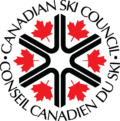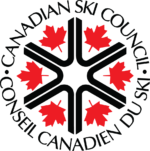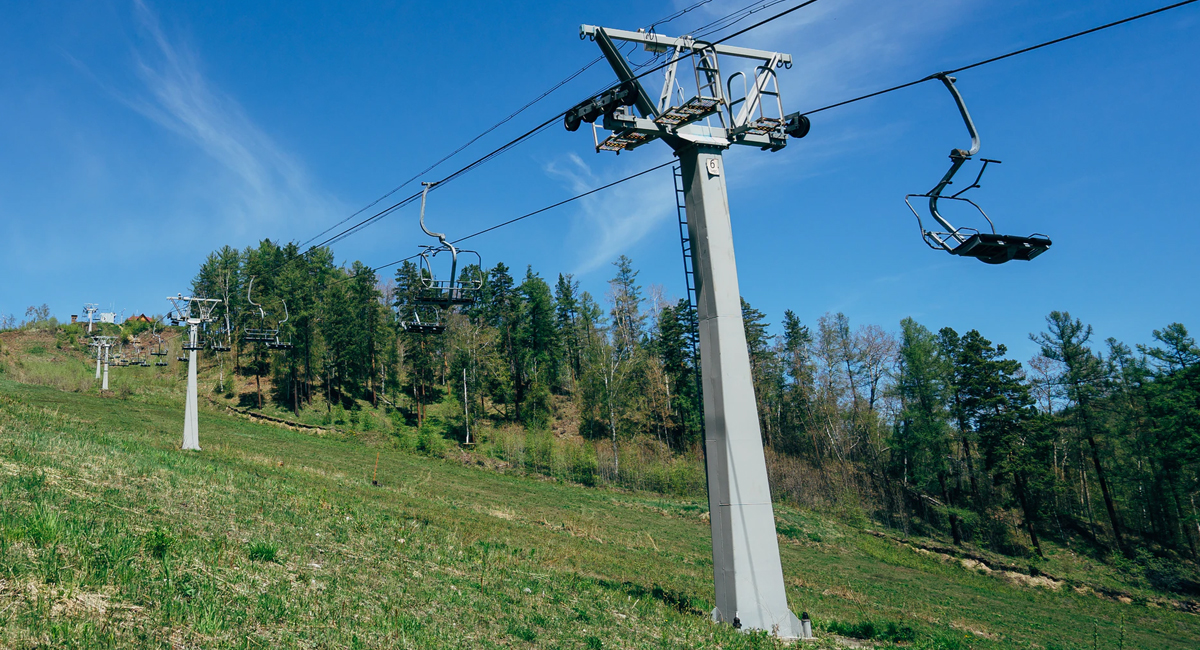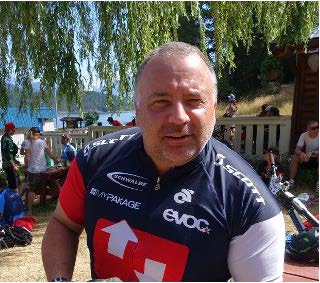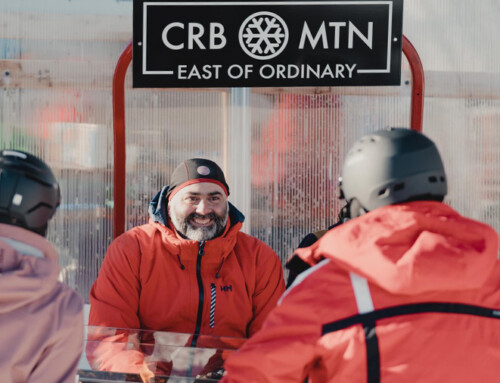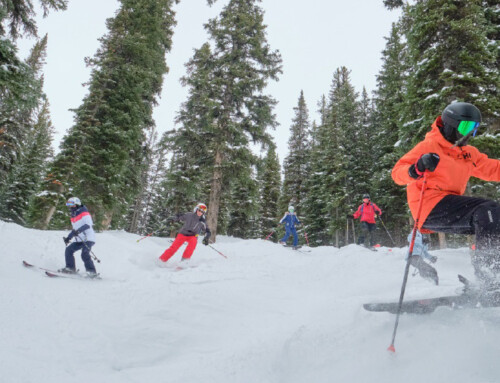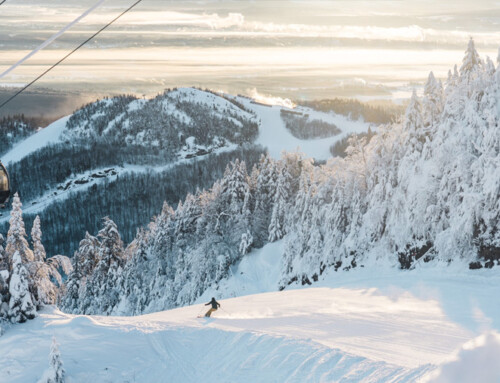The snow season is short. What can area operators do in the green season to put their assets to work and build new revenues during the other 6-9 months of the year? This session explored the rewards, opportunities and challenges associated with building a strong summer business.
Tactical Practical Insights to Growing Your Summer Operations
- Critical to summer success is ensuring the organization’s leadership and staff are onboard and in the right mindset to shift from being a ski operation to a multi-season destination.
- Dream big! At some point you may realize that executing your big dream isn’t a reality, but don’t impose limitations or parameters at first. The full dream may not be possible in the short-term but may be an option five years down the line.
- Long-term planning is essential. Look ahead at what and where you want to be 3, 5, 7 years from now. Affirm your business goals for summer, as they will guide your needed investments.
- Don’t have the same expectations of your summer guest as your winter guest. Summer guests are likely to be very different – less adventurous and outdoorsy.
- Events are a great way to build summer business without making a large, up-front capital investment.
- Be curious and seek expertise. If you’re thinking about starting a summer operation, find, visit and talk to people who have done it before you. They will have mistakes and advice they can share that will save you time and money.
- Optimize your capacity and revenue by carefully planning your infrastructure, attraction design and layout, staffing and visitor movement. Consider engaging
the help of consultants or experts.
Presentation Highlights
- Culture
- Mindset: You have to make a shift from ‘my business is skiing‘ to ‘entertainment is my business‘ and ski is my core product. Once you’ve made this shift it opens the business to a multitude of new opportunities: new events, attractions, amenities and services. Ultimately, you can then apply this same model to your winter operation.
- Different guest: It’s important to get a good understanding of who your summer guest might be and who you want to attract. A new level of education may be required to help them understand what’s available at your location and how to take advantage of what you have to offer, such as trails. What works in winter (e.g. green, blue, black signage to indicate trail difficulty) won’t necessarily work with summer guests.
- Staffing: Summer operations can be a great way to provide year-round employment opportunities for your best staff, but you will need to plan for staff vacations and downtime for those who work year-round. Your organizational and reporting structure may need to evolve between winter and summer, if you’re bringing on new/different staff to support summer operations versus winter.
- Maintenance: Running a summer operation means you will have to think about how to get your maintenance done while operating.
- Planning:
- Business goals: Understanding your long-term business goals is critical. Think about what you want to achieve this year and next and how a summer operation can help you reach those goals (e.g. do you want to drive room nights).
- Multi-phased development: Consider, and think through, multiple phases of future development, as well as your capacity limitations, and try to foresee issues that may arise as attractions and amenities are added over time. If you don’t think through this thoroughly, you risk wasting money, if in the future you have to change infrastructure built in earlier phases.
- Staging growth: Third party events are a good way to start attracting people to your location in the summer. These types of events carry little risk, require less investment, and bring revenue and build awareness about the resort. Met Con Blue is an event that Blue Mountain brought in to introduce new visitors to the resort in summer and help them think about the destination in a new way.
- Attraction layout and design: Explore how you can ‘passively‘ introduce visitors to all that you have to offer. By having your hiking trail cross over your mountain biking trail, you passively introduce hikers to your mountain biking trails and vice versa. If you have a ropes course and your mountain coaster is below, you’re passively introducing visitors to it. The layout of your summer attractions can influence your revenue potential.
- Pricing considerations: Consider your pricing strategies – they can be a la carte or all-inclusive. While there are likely to be a group of activities that are included in an all-inclusive ticket price, as you add new attractions, if they are strong, you may be able to charge for them individually. However, eventually you will likely roll them into the all-inclusive rate.
- Execution:
- Flexibility and adaptabililty Do whatever you can to test your capacity as quickly as possible and identify your operating limitations and any chokepoints. Consider whether your lift has a lower capacity than the attraction it’s trying to feed and what the upper limits of your staffing and visitor throughput can support. Having a soft launch could be a way to test capacity with a friendly group of guests.
- Be flexible and adaptable – you may be able to run some attractions in winter. Blue Mountain discovered they could run their mountain coaster in winter, then discovered it was even better at night.
Participant Ideas, Actions, Inspirations and Challenges
The following topics guided the conversation between the participants and the Industry Topic Specialist:
- Staffing is a significant consideration in starting a summer operation.
- “We’re only able to dream as big as our human resources.“
- Businesses are having to ‘right-size‘ operations based on the number of staff they anticipate they will be able to recruit.
- If you have multiple attractions/activities, cross-training staff so they can be moved around was a strategy cited for coping with shortages. Also consider staggered opening times for attractions as a way to encourage visitors to stick around longer, while operating with a smaller complement of employees.
- Paying honourariums to volunteer groups to help run events is another approach and recruitment strategy being explored to alleviate staffing shortages.
- Partnerships with other organizations can facilitate running summer operations.
- It’s important to have a shared vision and values with your partners. You want to make sure your partnership agreement clearly lays out the details and expectations of the agreement and provides a solid starting point for negotiations later down the road.
- Partnerships can reduce the risk and initial investment needed to get a summer operation started, but they come with their own set of challenges.
- Many ski hills looks to outdoor activities and attractions to expand into summer, but indoor events, such as weddings, also provide an opportunity to generate incremental revenue.
- Weddings can be really profitable. Ski hills can capitalize on this opportunity, particularly if there’s a lack of unique venues in your community.
- Weddings were cited by one participant as a good source of summer revenue that was able to help pay for needed maintenance for winter operations.
- Food and beverage / catering, and in particular liquor, is where the money is made in weddings – versus just the venue rental fee – but staffing was recognized as a past challenge that has been exacerbated by the current, growing staffing shortages.
- Events are recognized as a good starting point and opportunity for summer operations.
- Working with your community to attract and organize events can be explored as a way to start summer operations. Farmer’s Markets, food trucks and beer on the patio, and Toad Fest at Summit Lake, were cited as home-grown events that have helped introduce and grow summer operations.
- Third-party and other types of events cited by some of the participants that they have successfully organized to bring summer business included:
- Tough Mudder
- Spartan Race
- Music Festivals
- Growing Organically – doing little things that have less risk and lower investment, to see where things go, is a strategy that’s been used successfully by many to get started. You never know where it might go. Don’t worry too much about what will happen in the future – just try something.
- Don’t be afraid to fail! The reality is you’ve introduced visitors to a new concept at your location and helping them see you in a new light.
- Try calling up a local restaurant or partner and say ‚‘hey, do you want to host [something] at our place‘ – worst case scenario it doesn’t work, best case scenario you’re off on a new path!
- Add new value over time to your summer offer to continue to change things up and entice repeat visitation. Examples cited as value-adds included:
- Adding ‘fairy doors‘ on hiking trails
- Scavenger hunts
- Birding activities – bird houses and a local bird guide
- Communicate your plans online.
- Be sure to update your website with any information to let people know your summer plans, even if it says ‘more information coming soon‘.
- Let people know in the winter that you are planning to be / will be open in the summer.
- Consider having a page on your winter website that addresses, shows photos and promotes what is available in summer.
Industry Topic Specialist
It’s was a significant transition from thinking that ‘we [Blue Mountain] are in the ski business’ to ‘we are in the entertainment business’ and really having to think differently about ourselves when we went into summer operations.
Helpful Links
- Tough Mudder (3rd party event) – www.toughmudder.com
- Spartan Race Canada (3rd party event) – www.ca.spartan.com
- Toad Fest – https://www.trailtimes.ca/trending-now/toadfest-2019-celebrates-10-years-of-helping-toadlets-cross-the-road/
- www.iaapa.org – The global association for the attractions industry
- www.SEgroup.com – Outdoor recreation consultants doing strategy, planning, permitting and design
Disclaimer: In providing your business with the information above and other support or advice, including information, support and/or advice relating to your business operations, Covid-19 recovery, The Canadian Ski Council, Tourism Café Canada, session sponsors and topic specialists are not responsible or liable for decisions made, strategies adopted or third party program results, and specifically disclaim any responsibility for any consequences, financial or otherwise, of a business relying on our advice or using information we provide. Companies must understand and agree that they are responsible for all actions they take and decisions they make and must do their due diligence and seek appropriate legal, accounting, tax, or other professional advice as they may require.
